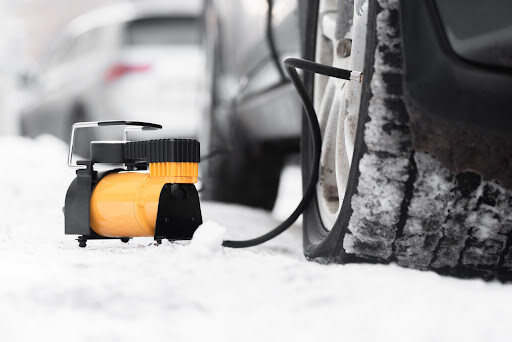Frequent questions asked about tyre pressures
Tyres are typically overlooked when it comes to car maintenance. Yet they are one of the most important parts of your vehicle. So, keep your tyres properly inflated to extend their life and ensure they perform as intended.
What is tyre pressure?
Tyre pressure is the amount of air inside a tyre, most often expressed as PSI (pounds-per-square-inch) or kPa (kilopascals). The tyres are inflated to a pressure that suits their use on the vehicle, making sure they maintain the proper amount of grip on the road surface and wear evenly.
How do you check your tyre pressures?
Tyre pressures should be checked once a month with a quality tyre pressure gauge and adjusted as needed to ensure safety, fuel efficiency, and optimal vehicle handling.
Tyre pressure gauges are generally available in most auto stores for inexpensive prices and are small enough to be kept in your glovebox.
Be sure to check your tyre pressures either at home before you start driving, or after driving the minimal distance possible to get to a fuel station. This is because your tyres warm up as you drive and this can change your pressure readings.
What should your tyre pressures be?
There isn’t a one-size-fits-all answer here, because each vehicle will have different recommendations. But, the recommended tyre pressures can be found in your car's owner's manual or on the placard, which is usually located in the driver's door jamb.
The proper tyre pressure is determined by a variety of factors, including the type of tyres, the age of the tyres, the weight of your vehicle, and where you live. If you have aftermarket wheels and tyres, your ideal tyre pressures might be different to what is on your sticker. Check with us for more information!
What are the effects of the wrong tyre pressures?
Underinflated tyres can have several risks, including overheating and blowouts at high speeds, severe wheel damage due to potholes, and detachment of the tyre from the rim.
On the other hand, overinflated tyres can cause problems too. For example, tyres are more susceptible to punctures, and their harsh ride quality makes them wear out in a strip down the centre of the tyre tread. High tyre pressures will also reduce the contact patch on the road, improving fuel economy at the cost of reducing grip significantly, as well as premature tyre wear.
Should tyre pressures be the same for each tyre?
Generally, it is recommended to have all your tyre pressures equal. That being said, there is no rule stating that tyre pressures must be the same for all tyres. Each tyre's ideal pressure varies depending on its size, age, load, and other factors.
For instance, if you are in a passenger vehicle and have a heavy boot load, such as bags of potting mix, adding some extra air to your rear tyres will help counteract the heavy load.
Before making a decision on your own, it is best to consult the manufacturer's recommendations for your particular vehicle or to speak with a mechanic or technician here at Integrity Tyres.
Is tyre pressure affected by temperature?

The air pressure in a tyre is affected by many factors, including temperature. For example, during cold conditions, the air pressure will be lower than in warm weather. This is because the air inside the tyre becomes dense at lower temperatures. However, it takes up less space, resulting in a pressure drop.
Using a tyre pressure gauge shows your tyres lose 1-2 pounds of pressure for every 10 degrees of temperature drop.
Check your tyre pressures with Integrity Tyres
Tyre pressures should be checked at least once a month, or every time you fill up with fuel to maintain optimum tyre pressure.
If you’re planning a trip away, need new tyres, or have questions relating to tyre choice, tyre pressures, suspension maintenance, or safety checks, come to Integrity Tyres. We are located in three suburbs of Perth: Wangara, Osborne Park, and Welshpool.
Phone us on your local store number to book your vehicle today! Or, book our services online.
